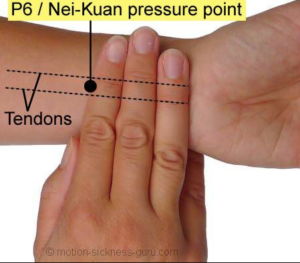Morning Sickness
Morning sickness is often one of the first signs of pregnancy. It is a common complaint about many new parents, but it often passes by three months into the pregnancy. Some may experience severe morning sickness.
Normal, physiological morning sickness can last all day for some people. Morning sickness occurs in over 50 percent of all pregnancies. It usually starts around week six of pregnancy and disappears around week twelve. However, this is a guide, not a rule and each birthing person can have a different experience. In fact, nausea does not happen only in the morning. Most women find that it eases as the day goes on, but for some women, it may continue all day.
Morning sickness does not need medical attention unless it is severe and leads to dehydration and weight loss. There is more information about active management due to excessive vomiting near the end of the blog.
The exact cause of morning sickness is unknown. It may be due to pregnancy hormones, fluctuations in blood sugar, or an acute sense of smell. It doesn’t have to be something you simply grin and bear. There are plenty of treatment options that are available that can help you feel better. It can be managed in a number of ways, including through dietary measures, magnesium supplements, essential oils, alternative medicine, and rest.
Natural Remedies
Eat With Care
You have heard this before but it bears repeating. Eat smaller, more frequent meals. As many as 5-6 small meals a day instead of the traditional three. By not eating you can make nausea worse. Stay upright after you eat: Some people are more likely to experience reflux or become nauseous if they lie down within 30 to 60 minutes following a meal.
Fatty and spicy foods as well as caffeine can increase your stomach acid. This can change as the pregnancy progresses. As the baby grows in size and pushes against the digestive tract. Bland foods are less irritating for many.
Starting the morning with some salty crackers or a protein snack before getting out of bed helps some. Also makes sure you get a potassium source in the morning, like a banana. Potassium may help prevent more morning sickness.
During the day have some Carbohydrates like baked potatoes, rice, and dry toast. Add more citrus or potassium foods midday too. Sour foods can actually tame a sour stomach!
At night, eating a high-protein snack before going to bed will help regulate your blood glucose levels during the night.
Magnesium
Magnesium is an essential mineral, important to the body’s ability to function. Over 80% of the population is magnesium deficient in daily life and when pregnant you are especially susceptible to a magnesium deficiency. Because you are feeding not just yourself but your growing baby as well, the body needs a different in the amount of magnesium.
Magnesium bisglycinate is our top choice for a magnesium supplement for pregnancy. You should start with the dose int on the bottle and increase as needed. Once you find your magical dose amount, you will experience your nausea and morning sickness disappearing, prevention of leg cramps or restless leg syndrome, fewer lower back, hip, and round ligament pains.
Hydration
It is important to stay hydrated at all times, especially in pregnancy. Dehydration can aggravate feeling nausea. However, try to drink fluids only between meals and reduce your fluid intake with meals. Consider
- Using a sports drink to replace lost electrolytes.
- Sucking lemon or lime flavored ice cubes or frozen fruit juice
- Consider ginger drinks like ginger ale soda.
- Consider peppermint tea hot or cold. Peppermint is another great tummy tamer.
Stay physically and mentally active
Being physically active has been found to improve symptoms in women who experience nausea during pregnancy.
Keeping busy can help take your mind off the feelings of nausea. Reading a book, doing puzzles, watching television, playing cards, or going for short walks around the block will help to keep you preoccupied.
Rest
It is important to get a good night’s sleep. Napping during the day may help too, but not straight after a meal, as this can increase nausea. As time goes on and the body changes shape, a maternity body pillow may help support your back and abdomen. Also sleeping on your left side appears to help with nausea.
Alternative Medicine
Aromatherapy is an easily accessible option to treat nausea. It is portable and effective. Several studies demonstrated that smelling peppermint oil is another alternative likely to help reduce nausea. Peppermint can be inhaled using essential oils or by inhaling peppermint tea. Other people report great success in smelling lemons, citrus foods, ginger, and even rosemary.
Acupuncture or Acupressure
These are two scientifically studied techniques to reduce nausea. In traditional Chinese Acupuncture, thin needles are inserted into specific points on the body to calm and reset it. Acupressure aims to stimulate the same points of the body but uses pressure instead of needles to do so. Both techniques have been shown to be effective for treating nausea with virtually no side effects.
It is easy to test out this easy acupressure technique on your own. Start by pressing three fingertips gently but firmly on the base of your palm, just above where you’d take your pulse on your wrist. Breathe deeply and press that area with your fingertips for a minute or more, gradually increasing the pressure until you feel slight discomfort. The sensation should be the same as the feel of a mini-massage.
Several studies report a benefit of stimulating the P6 point. You can stimulate this nerve on your own simply by placing your thumb 2–3 finger-widths down from your inner wrist, between the two prominent tendons. Once you’ve located it, press down with your thumb for about one minute before repeating the same procedure on your other arm. Repeat if needed.

There is little scientific evidence to support Homeopathics but don’t write them off your list. There are four common homeopathic for nausea. It is important to read through the description of each one to see which remedy is for you.
- Pulsatilla – if you feel better outside, crave rich sweet fatty foods but they make you feel worse and your moods change frequently throughout the day.
- Colchicum- if you are sensitive to food smells, and report nausea lasts all day worse with motion and prefer to lie curled up.
- Ipecacuanha- for severe nausea not better with vomiting, you also have profuse salivating.
- Nausea vomica- if you are unable to vomit, and it is worse when walking. You feel hungry but then feel worse after eating. You report feeling cramping and sensitive to light and noise.
- Sepia- if you are worse with the smell and thought of food. Feel a sinking sensation in your stomach and heaviness in your pelvis. Eating is a temporary help with cravings for sour & sweet foods. Exhausted but exercise makes you feel better.
Avoid Triggers
Wear loose and comfortable clothing. Restrictive or tight clothing may worsen the symptoms of nausea. Women who experience nausea during pregnancy have fewer symptoms of nausea when they wear loose-fitting clothes.
Reduce eye strain by avoiding monitors and TVs. If it is not possible to avoid using a computer monitor, it may help to
adjust the screen by making the fonts bold and larger and changing the background to a blue-blocker. This will help reduce eye strain.
Morning sickness is linked to an increased sensitivity to smell. Some strong smells can worsen the symptoms, try to figure out which smells are triggers for you, and avoid them. Also smelling clean, crisp scents such as lemon, peppermint, and rosemary may help to keep nausea at bay.
Supplements and Medications
Supplements should only be used under a doctor’s supervision. If you are taking vitamins it may be best to take them before bed and with a snack.
Vitamin B6 may help reduce nausea. Timerelaese vitamin B6 or 25mg of B6 three times a day is increasingly recommended as an alternative treatment for pregnant women. A combination of both vitamin B-6 and Unisom has been recommended by the American College of Obstetricians and Gynecologists for treating morning sickness in the first trimester.
It is also possible that Iron supplements can sometimes lead to nausea. A doctor may recommend a slower-release form or a lower dosage. Also, take iron supplements with orange juice or another drink with Vitamin C to increase absorption.
Excessive vomiting
Excessive vomiting during pregnancy is called hyperemesis gravidarum. It can lead to dehydration, malnutrition, and weight loss. It affects around 1 in every 300 women during pregnancy. It usually only lasts for the first 20 weeks of pregnancy. Reach out to your provider if:
- You lose more than 2 pounds in weight
- You are vomiting blood, which may be red or black
- You vomit more than four times in one day
- You are unable to keep fluids down for more than one day
The doctor may recommend the suggestions above, and the use of antacids. In severe cases, the patient may need to receive intravenous fluids and nutrition. Medications are usually not recommended as they may have unexpected adverse effects during pregnancy.
Frequent vomiting can damage your throat with stomach acids, leading to heartburn, and a sour stomach. Acid reflux medications like Zofran and Vistaril may lower the acidity of your stomach, improving your ability to draw nutrients from your food, and reducing the damage caused when you do vomit.
Many women find that a combination of the methods above can help them to manage their discomfort.

